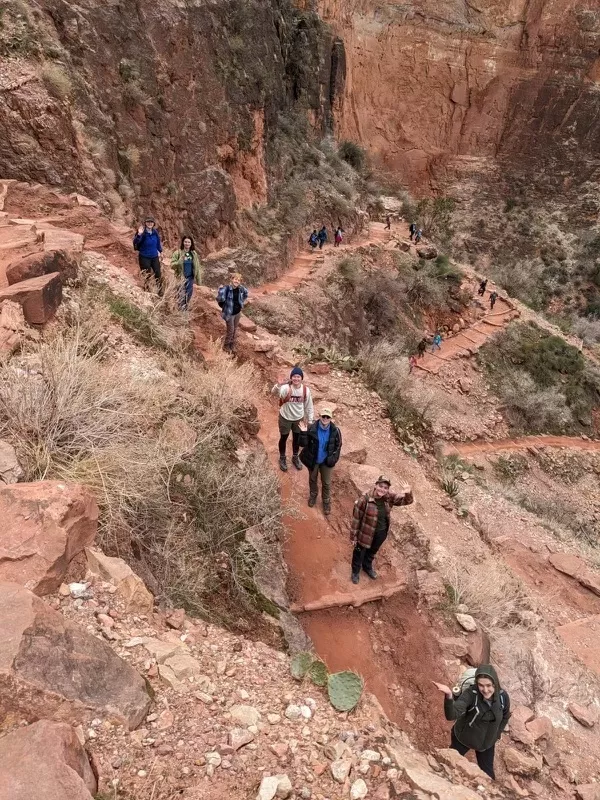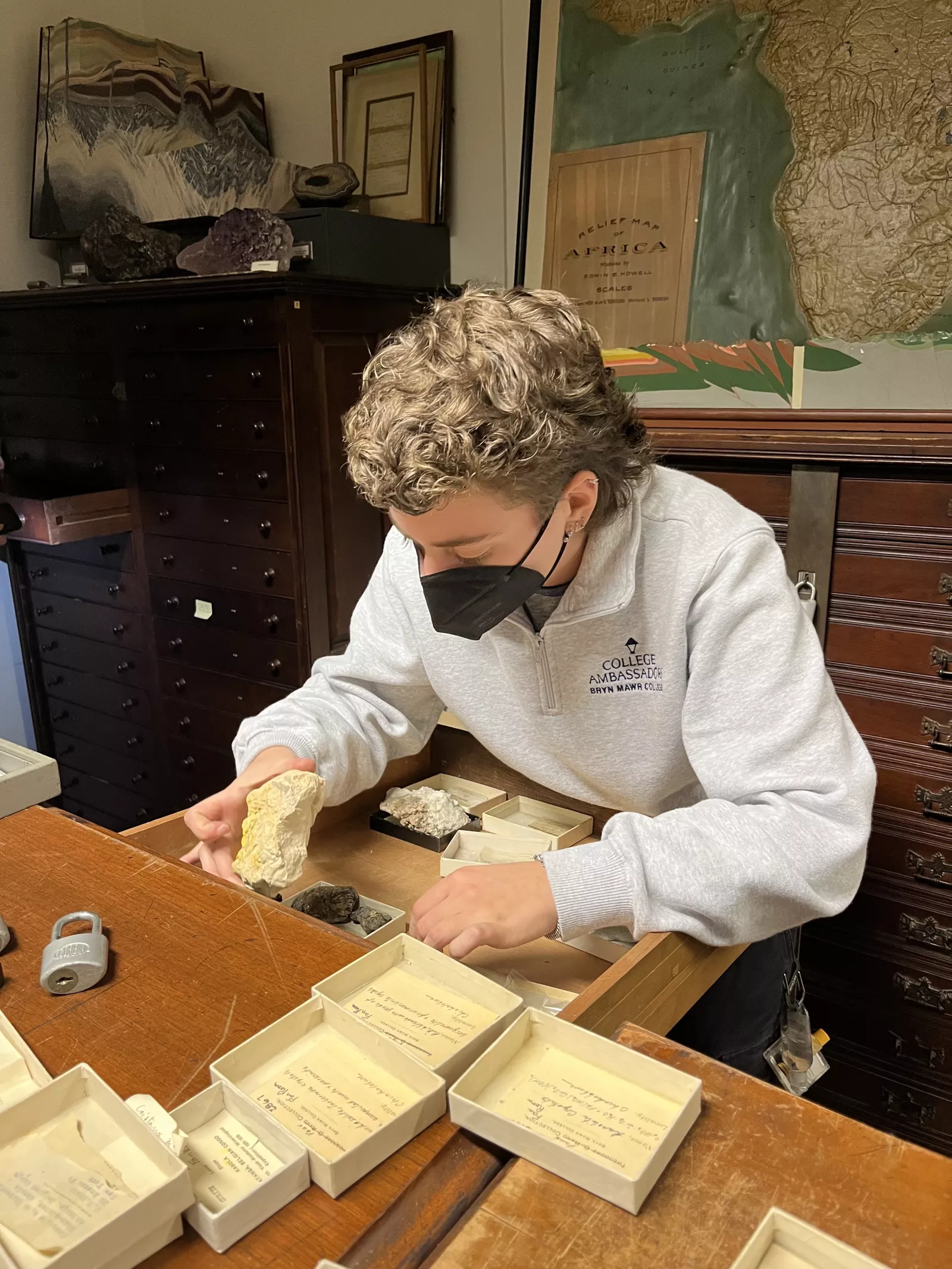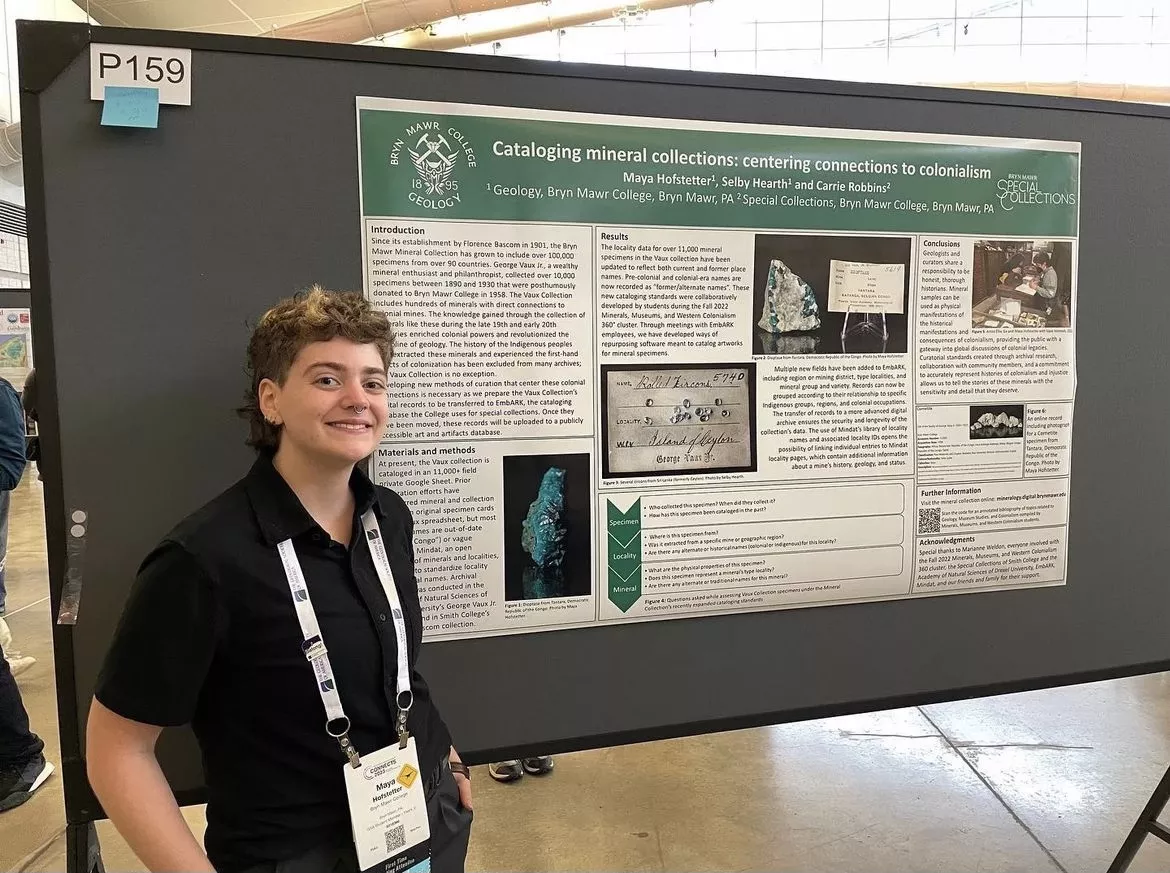
Maya Hofstetter '25
"At Bryn Mawr, there’s never a question if a student is capable of something—it’s assumed that they are."
"At Bryn Mawr, there’s never a question if a student is capable of something—it’s assumed that they are."
Originally from Takoma Park, Maryland, Maya knew she was interested in studying museum sciences before coming to college. When she took the introductory geology course in her first semester at Bryn Mawr, it sealed the deal! Now a junior, Maya has had the opportunity to travel near and far with the geology department, from Valley Forge National Park to the Grand Canyon, and even all the way to London, England. She’s also worked with Bryn Mawr’s rock and mineral collection, which hosts over 100,000 specimens.
These geology excursions had a lasting impact on Maya, she says “The Grand Canyon is the most beautiful place on earth. As you’re walking down, you’re going back in time and can see how the layers of rocks change. On that trip, we went to see the Barringer Crater in Arizona, which is this giant meteor impact crater. We actually have a sample of it in Bryn Mawr’s meteorite mineral case, and this past summer I got to photograph and organize it for the archives.”
But the importance of fieldwork and curating experience are not lost on Maya. She notes, “Geology is unique among the other sciences that we offer because it is so dependent on fieldwork. As opposed to conducting experiments in a lab, gathering data in geology means you go out into the field. You go out into the middle of nowhere with other geologists and you sample rocks. It's usually viewed as a “boys club” type thing. And it's not something that women have historically been encouraged to go into. But at Bryn Mawr, there’s never a question if a student is capable of something—it’s assumed that they are.”
Being at a women’s liberal arts college has been influential to Maya’s experience studying STEM. She remarked that it wasn’t just access to the collection or personalized attention from professors and mentors, but learning to believe in herself. She states that “Bryn Mawr encourages students to go outside of their comfort zones, excel, and have confidence in their intelligence. It’s really hard to break out of imposter syndrome, but the fact that this place encourages people to actually verbalize that mentality and see that it’s a common struggle that people deal with, especially women, it helps people move past that. Having access to fieldwork, mineral collections, and personalized mentorship makes it easier to fight for those opportunities beyond Bryn Mawr. And college doesn't feel like a holding ground before you're released into the 'real world.' You're doing meaningful work while you're here and making a difference.”
Though she had clear intentions when arriving at Bryn Mawr, it’s the people who Maya surrounded herself with who have helped her achieve her goals. She concludes, “During my time here, I’ve changed in that I’ve become more confident and pursuing my goals, but I would not have been able to do that without being in this specific environment. It’s nearly impossible to change on your own. There’s this idea that self-improvement is completely centered upon a singular person to take on. But we’re communal creatures—it takes a communal effort to better yourself and pursue your goals. I think it’s important to acknowledge that it’s not only okay to ask for help, but it’s something that is incredibly necessary. Giving myself grace and knowing that I have people in my corner has been very important.”


